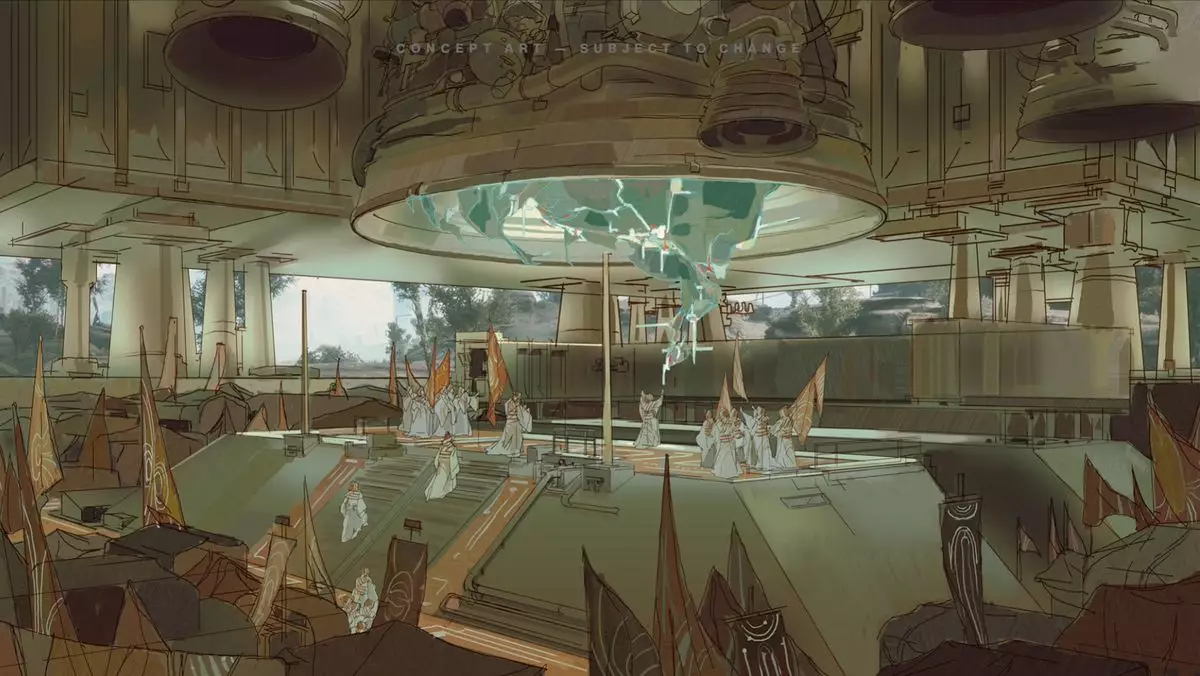Destiny 2, a titan in the gaming world, is set to undergo significant changes as Bungie transitions to a new model of content delivery. The decision to implement a twice-yearly expansion strategy mirrors a commitment to providing experiences that are deeper and more engaging than before. Robbie Stevens, the assistant game director, articulated this shift during a recent livestream, suggesting that players can expect “medium-sized” expansions reminiscent of the Rise of Iron from the original Destiny. This move aims to keep the community engaged and excited, but can Bungie strike the right balance between quantity and quality?
Bungie’s approach to Destiny 2 has historically followed a pattern of large expansions interspersed with seasonal content. The introduction of a more consistent, mid-sized expansion format could breathe new life into the game. According to Stevens, this new model will offer unique campaigns alongside intricate post-game experiences, encouraging players to dive into the richness of the game’s narrative and world-building. Each expansion will not only deliver a compelling storyline but also an environment filled with secrets waiting to be uncovered—a concept illustrated well with previous environments like the Dreaming City.
Yet, the question remains: will the shorter intervals dilute the narrative impact? Examining the context of storytelling in video games reveals that pacing is crucial. By opting for a more frequent release schedule, Bungie risks fragmenting its story arcs unless careful attention is paid to the overarching plot. Drawing from proven procedures in their storytelling, Bungie appears to be positioning itself to deliver a narrative that progresses naturally, avoiding the pitfalls of filler content that plagued previous expansions.
The most exciting element of the upcoming expansion, codenamed Apollo, is its inspiration from the Metroidvania genre. Stevens revealed plans for a nonlinear campaign, suggesting a fundamental shift in how players will navigate the game. Here, players will have the freedom to explore in their preferred order, resembling the exploration mechanics that characterize beloved franchises within the genre. This could potentially transform the player experience into one of discovery rather than linear progression.
Alison Luhrs, the narrative director, emphasized this innovation by mentioning numerous narrative threads players could follow, providing a layer of player agency rarely seen in Destiny 2’s previous campaigns. The suggested design will allow players to acquire abilities and unlock new regions in non-linear ways—a gameplay mechanic that has captivated players in Metroidvania titles for decades. The implication is clear: Destiny 2 aims to not only transport players into a rich world but also grant them the necessary tools to delve deeper into their personal journey.
As Bungie contemplates the method of storytelling in Destiny 2, there appears to be a strong desire to evolve beyond the static placement of NPCs throughout the solar system. Luhrs mentioned a proactive approach to questioning existing storytelling structures, indicating that the narrative delivery may experience a radical re-evaluation. This introspection could lead to more dynamic character interactions and more cohesive storytelling—elements that have often been criticized in past expansions.
Moreover, the notion of removing extraneous content meant to ‘pad’ expansions underscores an eagerness to focus on storytelling that is concise yet richly layered. The intent is clear: as Bungie pushes for a more engaging narrative experience, pacing becomes key to ensuring players remain invested in the unfolding saga. The lesson here might be best encapsulated by the concept of storytelling integrity—the narrative should maintain its emotional weight and intrigue at every turn, rather than relying on volume to sustain interest.
As Bungie sets its sights on the future of Destiny 2, players are left with a mix of anticipation and skepticism. The developer’s pivot to smaller, more frequent expansions seems promising, particularly with the allure of a nonlinear Metroidvania-inspired experience. However, execution will be crucial. Will the new content maintain the depth and coherence that dedicated players have come to cherish, or will it falter under the weight of its own ambitions? As the community awaits the launch of Apollo, one thing is clear: Bungie is eager to redefine its journey and, in turn, the player’s experience in the Destiny universe. The next few releases will set in motion the fate of this beloved franchise—one exploratory adventure at a time.


Leave a Reply